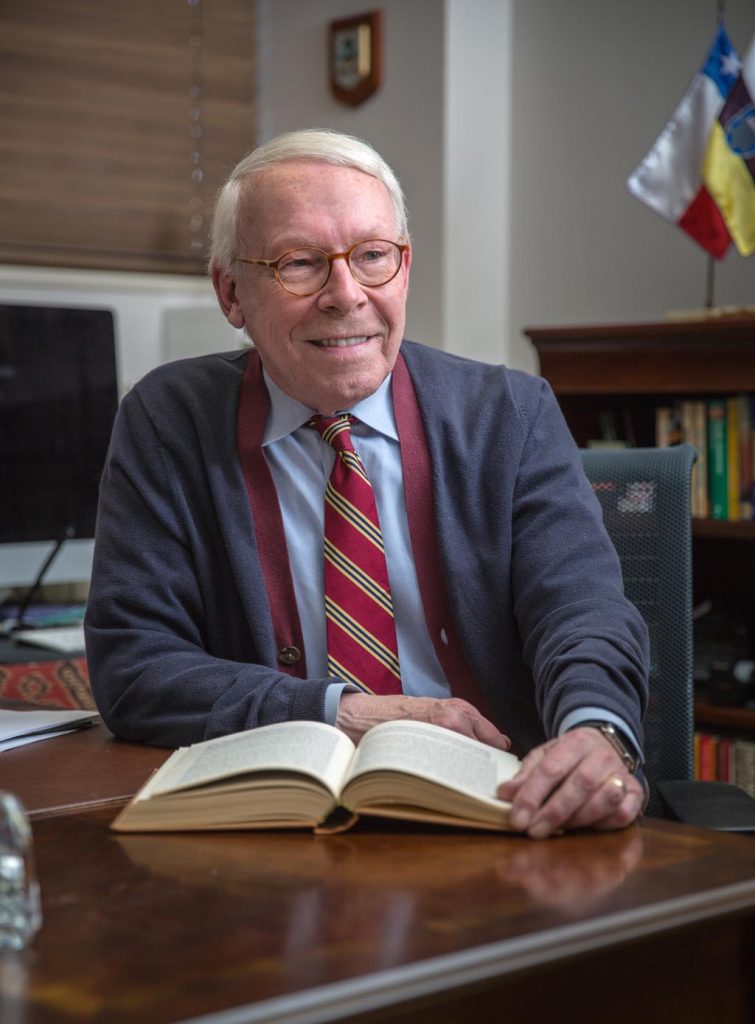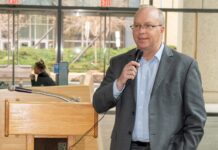
Rodger Randle is a professor in the University of Oklahoma’s Department of Human Relations, director of OU’s Center for Studies in Democracy and Culture, and an honorary British consul for Oklahoma. Randle joined the Peace Corps before being elected to, in 1970, the Oklahoma House of Representatives and, in 1972, the state Senate, where he served four terms. He became Tulsa’s mayor in 1988 and served two terms. We caught up with Randle and got his thoughts on …
… Oklahoma’s education crisis.
From the beginning of our country, public education has been a hallmark of our democracy. Access to quality, publicly-funded education for everyone has been a key to our success. In Oklahoma, sadly, we are in retreat from this fundamental commitment. In those states with strong support for public schools, standards of living are higher and quality of life is better. Study after study proves this. In Oklahoma, our failure to invest in public education is closing the door on our future. The companies we want to attract to our state won’t come and more young people will leave. The most insidious [element] is that … by the time we see the actual damage … we will be a decade too late to correct our error.
… a public servant’s life.
In the era in which I grew up, public service was one of the most noble of callings. John Kennedy became president while I was in high school. Many of us were filled with optimism for what was possible in the world, and we had leaders who inspired us with the idea that each of us had a personal duty to making the world a better place. Joining the Peace Corps was a reflection of this idealism, but also an expression of a sense of adventure. Seeking public office was never one of my aspirations, but … as it turned out, opportunities opened up to serve in elective office. In high school and college, I thought a university faculty position as the finest thing to which a person could aspire. It has been a circuitous route to get here.
… getting youth involved politically.
Many young people are attracted to getting a good job, earning a lot of money, and buying a lot of fancy stuff that will impress friends. Later in life they will discover that real inner satisfaction comes from the good they do for others. We live in a world today that is so interdependent and so interconnected that we simply do not have the option to ignore the policies that our government is making. Getting involved in politics and public service [has] an influence on the policies that determine the kind of world in which we are all going to live.
… his affability.
In my years in public life, a lot of time was spent in difficult meetings where everyone was on edge. Humor helped. I come across as someone very serious, and I am … but not really so serious as I seem. My humor comes from the gift, or curse, of being able to see things from unexpected angles. It is more of an ironic humor, not the backslapping, joke teller sort of humor. One of the nicest compliments I have received came when I was on an academic panel in Brazil (where Portuguese is the language), and one of the other professors complimented me on my “refined” sense of humor. It is nice to show humor in more than one language.
… being an honorary British consul.
My appointment was just being at the right place at the right time. We had a consul general for our region of the country who had decided that there should be an honorary consulate in Oklahoma. When he created the post, he did not have anyone particular in mind to fill it, and then a mutual acquaintance recommended me to him.

























